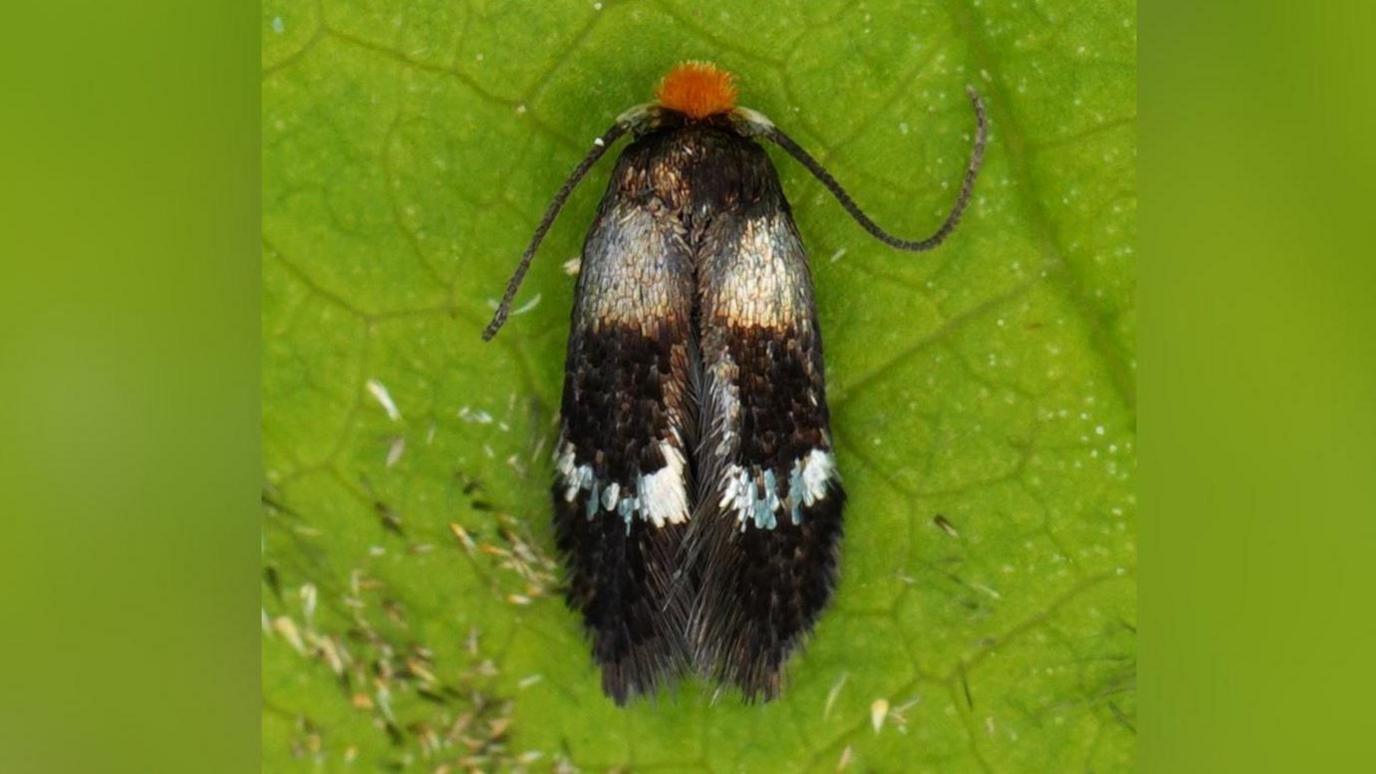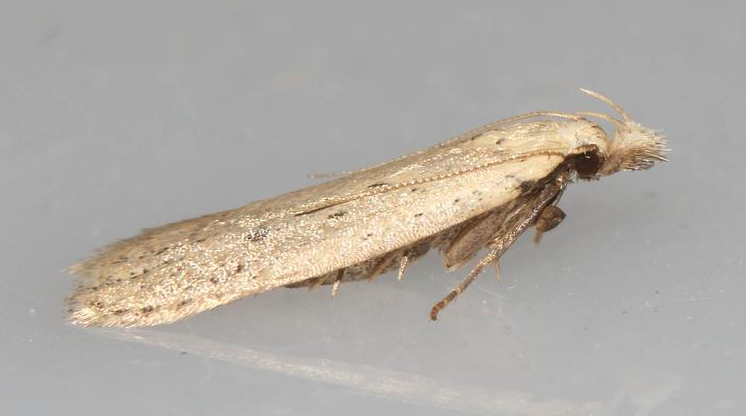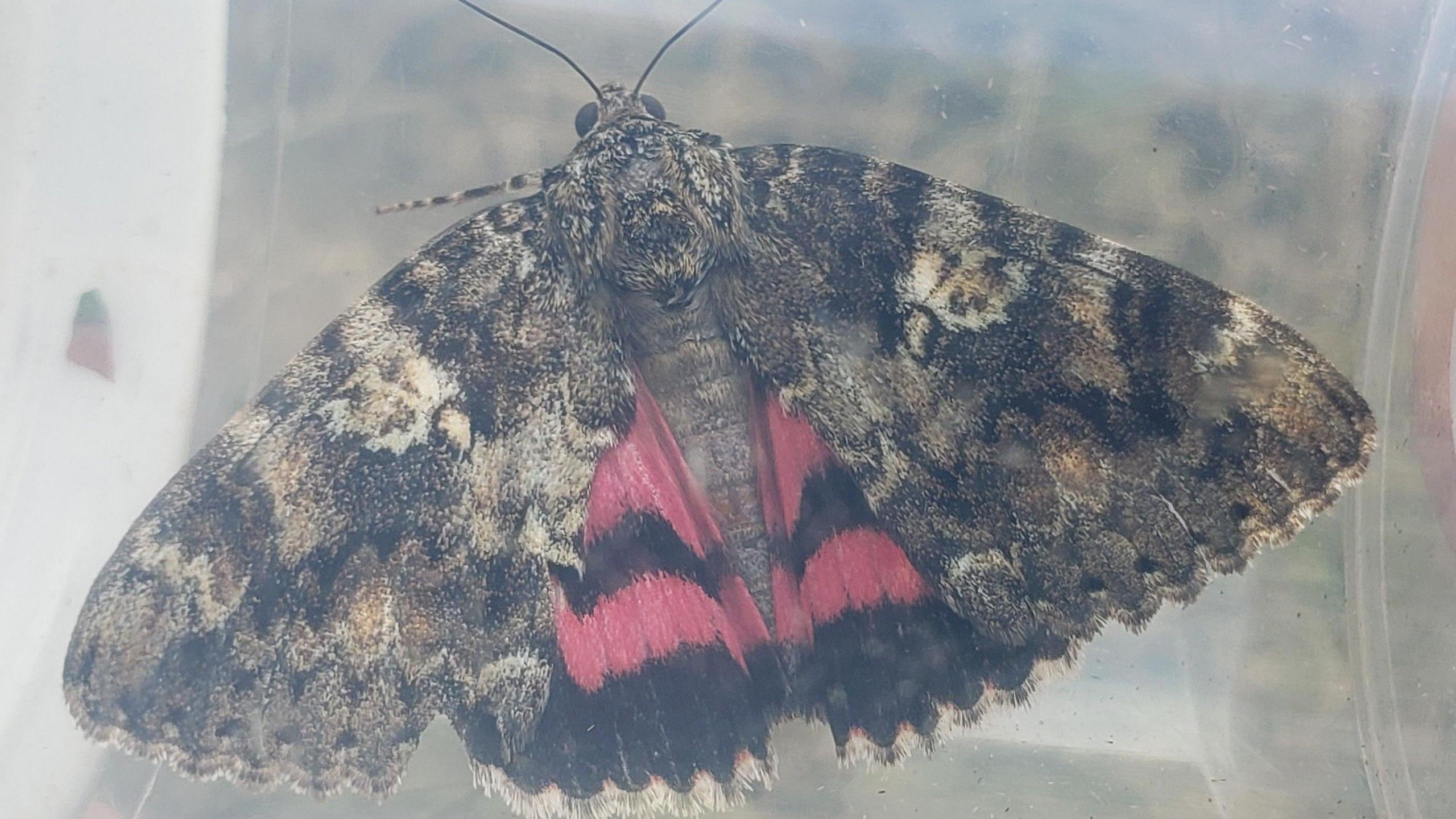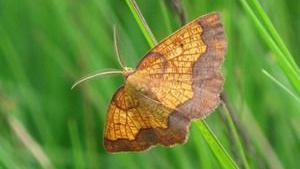Extremely rare moth is 'significant find' - experts

This is the first time the Gold-fringed Dot has been officially identified in the county
- Published
An extremely rare moth discovered during a nature walk at a Dorset farm is a “significant find", according to experts.
Dr Jack Oughton, from Dorset Moth Group, came across two of the moths, known as the Gold-fringed Dot, at Bere Marsh Farm in Shillingstone.
The tiny creatures, which have a wingspan of 6 to 6.8mm, were also inspected by experts who confirmed the finding.
It is the first time the Gold-fringed Dot has been officially identified in the county.
The micro moth has been recorded at less than a dozen sites in the UK, including in Gloucestershire, Wiltshire and Hampshire.
They are more commonly spotted in the Netherlands and Belgium and experts said this latest find was "perhaps evidence they are spreading".
Dr Oughton described the moth as having "silvery bars across its shoulders and an orange head".
He was leading a moths and butterflies walk at the Countryside Regeneration Trust (CRT) farm at the time of the discovery and found the moths at two separate locations after setting down traps.
He explained that most traps "do not harm the moths" and that they "almost always" release them unharmed.
In this case, due to the significance of the find, scientific protocol had to be followed and they had to dissect the moths in order to "identify them at species level".
"However, now we know they are there", Dr Oughton said, "we are unlikely to need to dissect further individuals."
It is hoped the discovery will enable experts to find out more about how the moth's larvae feed.
Dr Oughton said: "We do not truly know what its requirements are, it obviously requires something niche. This discovery may help us find out what that is."
He added that the findings demonstrated the diversity of wildlife at the farm, which he described as "a great habitat" for moths in general.
CRT community engagement manager Nick Dobbs said that even Dr Oughton seemed "surprised" at the discovery.
"I can recall the moment when a look of excitement appeared on his face when he spotted this very rare moth species," he said.
Get in touch
Do you have a story BBC Dorset should cover?
You can follow BBC Dorset on Facebook, external, X (Twitter), external, or Instagram, external.
- Published7 September 2024

- Published21 August 2024

- Published11 August 2024
